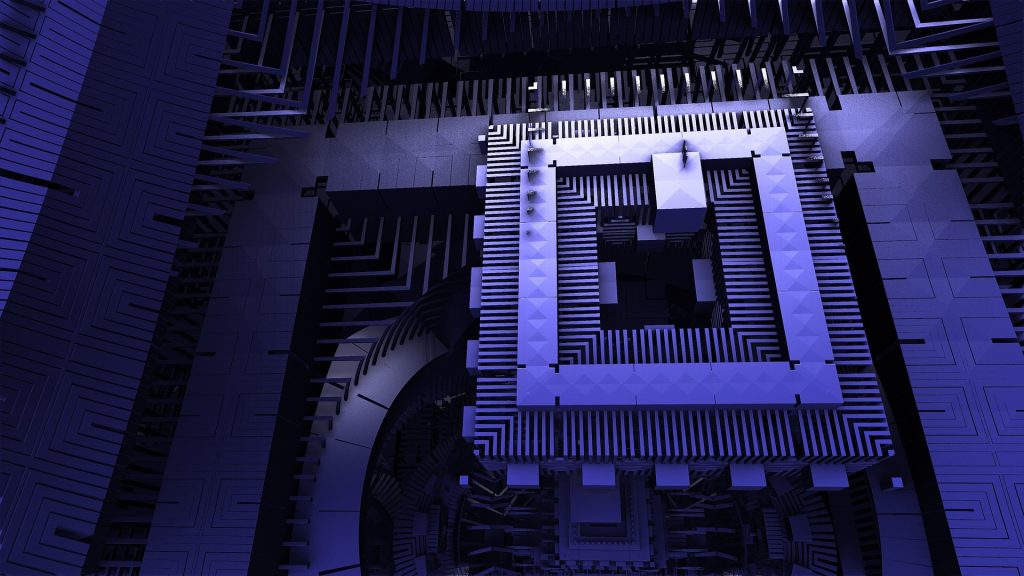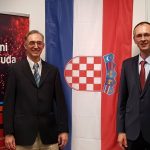July the 25th, 2023 – The remarkable Ruđer Bošković Institute is known for its bright minds and scientific innovation, and it has been developing one of the most important technological projects for the future – quietly.
As Poslovni Dnevnik/Josipa Ban writes, for half a year now, being carried out in almost in complete silence, one of the most important technological projects of the future has been being implemented in Croatia – the development of quantum communication infrastructure, i.e. quantum Internet.
Since the beginning of this year, the consortium of Croatian Quantum Communication Infrastructure (CroQCI) has been working on the development and establishment of such a network, which brings together nine partners. Their initiators are scientists from the Laboratory for Photonics and Quantum Optics of the Ruđer Bošković Institute, led by Martin Lončarić and Mario Stipčević.
The duo from the Ruđer Bošković Institute are among the world’s scientific top when it comes to the development of quantum communications.
The main advantages
Now, through their project, they finally have the opportunity to transfer to the real world what they have been developing in the laboratory for years now. “Quantum cryptography is finally coming out,” jokes Stipčević, head of the Laboratory for Photonics and Quantum Optics of the Ruđer Bošković Institute. This now finally “going out onto the streets” was made possible by the EuroQCI initiative of the European Commission (EC), which aims to establish a quantum communication infrastructure throughout the European Union (EU).
The CroQCI consortium, which is coordinated by the Croatian Academic and Research Network (Carnet), applied to the Digital Europe programme last year and secured a massive 10 million euros for the development of Croatian quantum communication infrastructure. Half of this amount, since half must be provided by the state, will come from NPOO.
Martin Lončarić from the Ruđer Bošković Institute, who, as a Croatian negotiator, participated in the initiative to launch EuroQCI, explained that this is a long-term programme and development process. First of all, the EU member states will work on the development of their terrestrial infrastructure, after which they will move on to cross-border quantum communication. In parallel, the European Space Agency is working on the Eagle-1 quantum satellite.
“As part of the project, we aren’t developing something that is cheap and simple and that we’ll be able to use in a year in every household. The project is much more complex because it involves very complicated technology that is extremely expensive. Our project is a demonstration and the first step towards the development of quantum internet”, explained Stipčević.
Laying the foundations of this network is especially important because we live in an information age where a good part of communication takes place via the Internet. And because of cyberattacks and the development of quantum computers, it’s becoming an increasingly unsafe place. Therefore, according to Stipčević, encryption has become essential in communications, and it is under constant threat.
The answer to these threats lies exactly with quantum cryptography. Stipčević pointed out that it isn’t only completely impenetrable, but it also enables the detection of attacks. The dedicated team of the CroQCI consortium is working on the very beginnings of the development of such a network, and all EU countries are working on their network development in parallel.
“We’re currently in the process of designing hardware components that will make up systems of receivers, transmitters, quantum operators, then a quantum receiving station consisting of an optical part, sophisticated fast acquisition electronics, computer programs for post-processing and so on. This is just one phase, and the second is the design of the network topology, finding available optical fibre resources, planning, and laying down some new routes between the nodes of the experimental Croatian quantum network”, Martin Lončarić explained, adding that everything should be finished by July 2025.
A fantastic opportunity for Croatian industry when it comes to quantum tech
“When this project is finished, there will be several secure nodes of the quantum communication network in Croatia, which will be connected by an infrastructure of non-illuminated optical fibres. These nodes will have hardware systems for quantum communication,” Lončarić revealed, adding that the project is a great opportunity for domestic industry to step into the quantum technology field.
We hope that IT and technology companies will join us in order to make the highest quality equipment possible, which could later be turned into something commercial,” hopes Stipčević. Namely, as Lončarić added, EuroQCI’s priority is to develop everything it possibly can right here in Europe and thus increase the technological readiness of European companies.
The quantum era
An important contribution to this will be made by the partner in the project – the Naval Electronics Centre (PCE) – which has several decades of experience in sophisticated hardware systems for classical cryptography, and will now incorporate a part necessary for quantum technology into them. Since it is an extremely complex and expensive project and infrastructure, the idea is that, to begin with, it will be used by critical infrastructure.
All this is a small but very important step in which Croatia can play an important role in the development of quantum technology. We have the brains, but we have to transfer knowledge to the industry, explained Lončarić.
In terms of knowledge, thanks to scientists from the Ruđer Bošković Institute, we’re at the very top of the world. Namely, back in 2019, Mario Stipčević and Martin Lončarić, together with their colleagues from Great Britain and Austria, conducted the experiment of the first real quantum network based on quantum coupled photons in which they connected as many as eight users. This was an enormous scientific breakthrough, since until then quantum communication was based solely on “links” between two points, and its results were published in the scientific journal Science Advances. Back in 2021, for the first time in the world, together with their colleagues from Italy and Slovenia, they connected three different countries using quantum communication.
Croatia’s quantum opportunity
Now, at the very beginning of its development, Croatia has the opportunity to position itself in the development of the technology of the future, because we live in a time of rapid IT progress, which inevitably leads to quantum. In this quantum world, Europe has decided to develop its own technology, and Croatia has its very own “horse for the race”. Let’s hope that at least this time, Croatia’s horse chooses to leave the stall on time.










